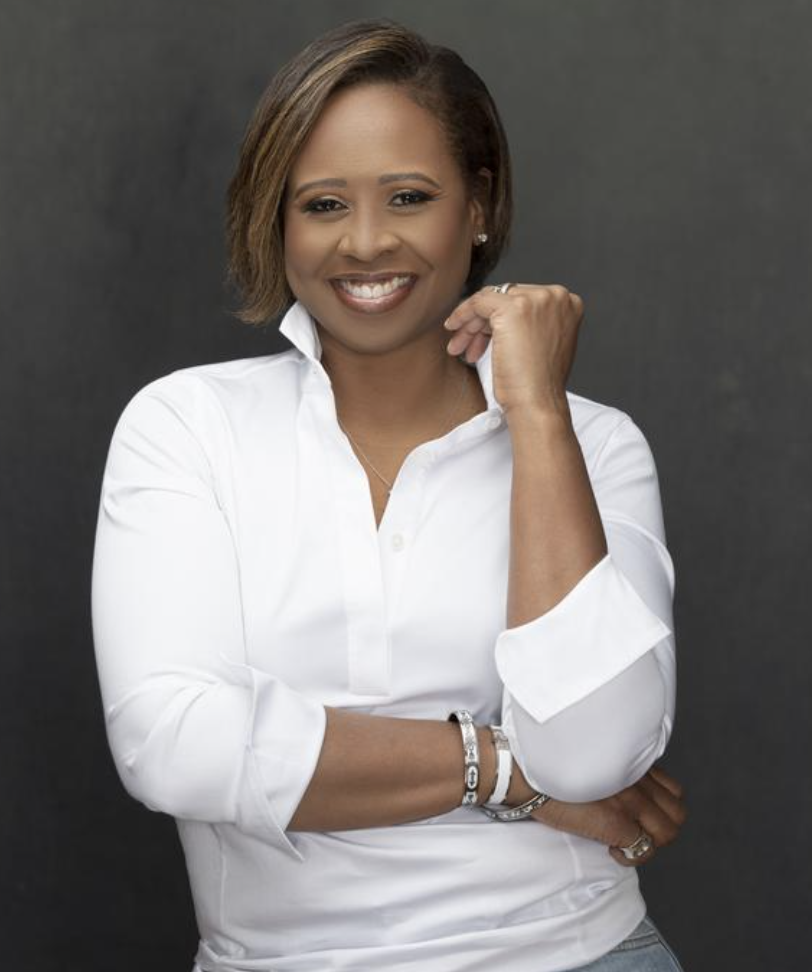How can a mentee best engage with a mentor? Here are tips from those who've done it.
By New York Business Journal staff
Feb 23, 2022 Updated Feb 23, 2022, 2:40pm EST
As part of this year's national Bizwomen Mentoring Monday program for The Business Journals, we contacted executives across the country — including here in New York — to get their input on this question: How can a mentee best engage with a mentor? Read on to learn what they told us in response.
Wendy Davidson, Glanbia Performance Nutrition, president-Americas (Chicago): I have always believed in the value of mentoring, investing in others and paying it forward — in large part because I’ve been personally impacted by those willing to invest in me along the way. The best connections need to be mutual, authentic and respectful — and getting the most out of a mentor relationship, for both parties, is dependent upon the effort put into it.
Remember that the pace and effectiveness of the mentor relationship is driven not by the mentor, but by the mentee. Keep in mind that the single most valuable and limited resource your mentor has is their time, so it is important to carefully plan for your time together. Set clear objectives you’d like to achieve, share your career goals and aspirations, align on a cadence of connections, and provide an agenda a few days in advance of each meeting.
The relationship between mentor/mentee is completely confidential, so use your time together to openly share your success and failures. Your mentor will likely have faced similar situations and can help you navigate given their experience.
Together, agree on specific goals you’d like to work on, develop an action plan for achieving those goals and plan to report back how you’ve progressed in each meeting. Mentors are there to provide constructive feedback and coaching. Actively participate, listen intently, ask clarifying questions when needed and, above all, express your appreciation for the relationship. Lastly, remember the best mentor connections provide mutual benefit for both of you. Your experience and perspective will provide as much value to your mentor as theirs will for you, so lean into the relationship and inquire how you can help your mentor as well.
Caroline Burton, StreetEasy, vice president and general manager (New York): It’s critical to know what you are looking for in and from a mentor. When you’re establishing a new mentor relationship, I recommend setting clear goals of what you want out of the relationship — such as networking with more female leaders, breaking into a new industry or building a new skill. Then, write them down, share them with your mentor and discuss with them ways to achieve those goals. Aligning on what you’re looking for and your expectations for the relationship — and then referring back to those goals often — is critical to getting the most out of the relationship.
Emily Sobel, Savills, executive vice president (New York): The best mentor-mentee relationships continue beyond formal programs. To get there, true connection has to happen. True connection happens through transparency in two directions with open and honest dialogue. For a mentee to show a real commitment to being present, they should come with questions. Questions are the key to dialogue. “Judge a man by his questions rather than his answers.” -Voltaire
Carolyn Dolezal, C200, CEO (Chicago): As a mentee, you should identify a specific goal for personal improvement and someone you admire who appears to have proficiency in that area and a style you appreciate. Tell the potential mentor about your goal and what you observe in them that you want to learn more about, and ask if they would consider meeting to talk with you about ideas. Mentoring is typically a longer-term arrangement and not a single transaction, so if the initial meeting goes well, ask for continued meetings at a cadence and timeframe that works for the mentor to keep you both engaged in the mentorship.
Sandya Dandamudi, GI Stone, president (Chicago): I have always been deeply fulfilled by successful mentee relationships. In my experience, when a mentee seeks out a mentor, the will and the impetus to succeed is already present. I have never had an experience where the mentee did not want to be mentored. However, I also have had two relationships that were not successful, and from these stems my advice.
A mentor is not a therapist or a suggestion box to complain about a current boss or workplace. The purpose of a mentor-mentee relationship has to be fulfilling for both parties involved. For me as a mentor, it is to impart whatever wisdom and experience that I have gained over the years, and it is also to give back and honor the mentors who have helped me. The best way that a mentee can engage with me is pretty simple: Be on time (I cannot emphasize this enough), actively listen and do not hesitate to question. Also, provide feedback to your mentor; you might be surprised how valuable that can be. While it is important for a mentor to understand the personal circumstances of the mentee, try to make it as professional as you can.
Patricia Gannon, Greenspoon Marder LLP, partner and co-chair of the Immigration & Naturalization Group (New York): Have objectives and goals and be specific about what you want out of the relationship as a mentee.
Elizabeth Brink, Gensler, co-managing principal, Southwest Region; Global Work Sector leader (Los Angeles): It is great when a mentee can be proactive with a mentor and bring up specific questions or topics they are interested in getting the mentor’s perspective on. I always find that approach leads to the most focused and useful conversations.
Robin Cohen, Cohen Ziffer Frenchman & McKenna LLP, chair (New York): Take initiative and be proactive. Ask for opportunities to grow, and take advantage of as many learning experiences as you can as early in your career as possible.
Denitra Griffin, AGB Investigative Services, president (Chicago): The advice for best engaging with a mentor is the same advice I give to others about attaining success in life: Have a growth mindset. Have the mindset to learn as much as you can through conversations with your mentor, as a volunteer or as an observer. Not all wisdom is gained through first-hand experience.
Also, don’t be afraid to take the initiative. Identify your needs as a mentee, discuss expectations, and prepare one or two conversational questions that draw out your mentor's experiences that you find interesting. Are there any past awards, acknowledgements or highlights that drew your initial interest? The moments with your mentor should be productive but also meaningful and authentic.
Lastly, the role of a mentor is not linear. They are not the human equivalent of a roadmap telling you which path to take or where to turn. Mentors are more of a guide. The best mentors will ask you questions and poke holes in your preconceived notions of life. In turn, they give you the tools to create your own roadmap as well as the confidence to listen to your internal compass.
Krystle Mobayeni, BentoBox, CEO (New York): Mentors bring different skills and experiences to their mentee relationships. It is important to understand what the mentor offers so that you can maximize the value of the relationship. To best engage with a mentor, I recommend having an agenda or clear purpose for each meeting or interaction. This will make the relationship the most productive and successful.
Nancy Wright, Girl Scouts of Greater Chicago and Northwest Indiana, CEO (Chicago): Getting to know one another is the first and most important step. Build a relationship. Mutual respect, vulnerability, authenticity and transparency are foundational elements that both the mentee and the mentor should feel comfortable bringing to their conversations so they can both grow from their journey together.
Tanya L. Greene, McGuireWoods LLP, partner (Los Angeles): A mentee can best engage with a mentor by being as candid as possible with their fears, concerns, and goals — and sharing how they see their background and culture impacting their work lives. Before I can help anyone, I have to understand who they are as a person — not just professionally, but what kind of life experiences they’ve had and a little bit about their personality. Anything the mentee can share with their mentor helps paint a picture so the mentor can understand who the mentee is, what their unique challenges may be (because this is not one-size-fits-all advice), and how to help get them to where they want to go.
A mentee should also be reaching out to their mentor periodically and proactively. Mentors are often busy professionals who may not even have a free period within which they can proactively reach out to their mentees, but a good one will stop what they are doing and make the time if they know they are needed at a particular moment. They are there as a resource, so use them.
Clare De Briere, Skanska USA Commercial Development, executive vice president and regional manager (Los Angeles): I find the best way to engage a mentor is to begin by finding the right mentor for you, followed by actively pursuing that mentor in a way that makes it as easy as possible for him or her. I find that the two most important aspects to finding the best mentor are shared values and shared passion. Look for someone who has achieved success in an area that you are passionate about and in a way that you respect and admire. When you reach out to that person, have a plan in place and have a specific request: Know what you want out of the mentor and be clear and specific when you reach out to him or her. Then, you be responsible for scheduling your meetings/discussions, and keep to the time allotted — if you ask for five minutes, keep it to five minutes — making it as easy as possible for your mentor.













